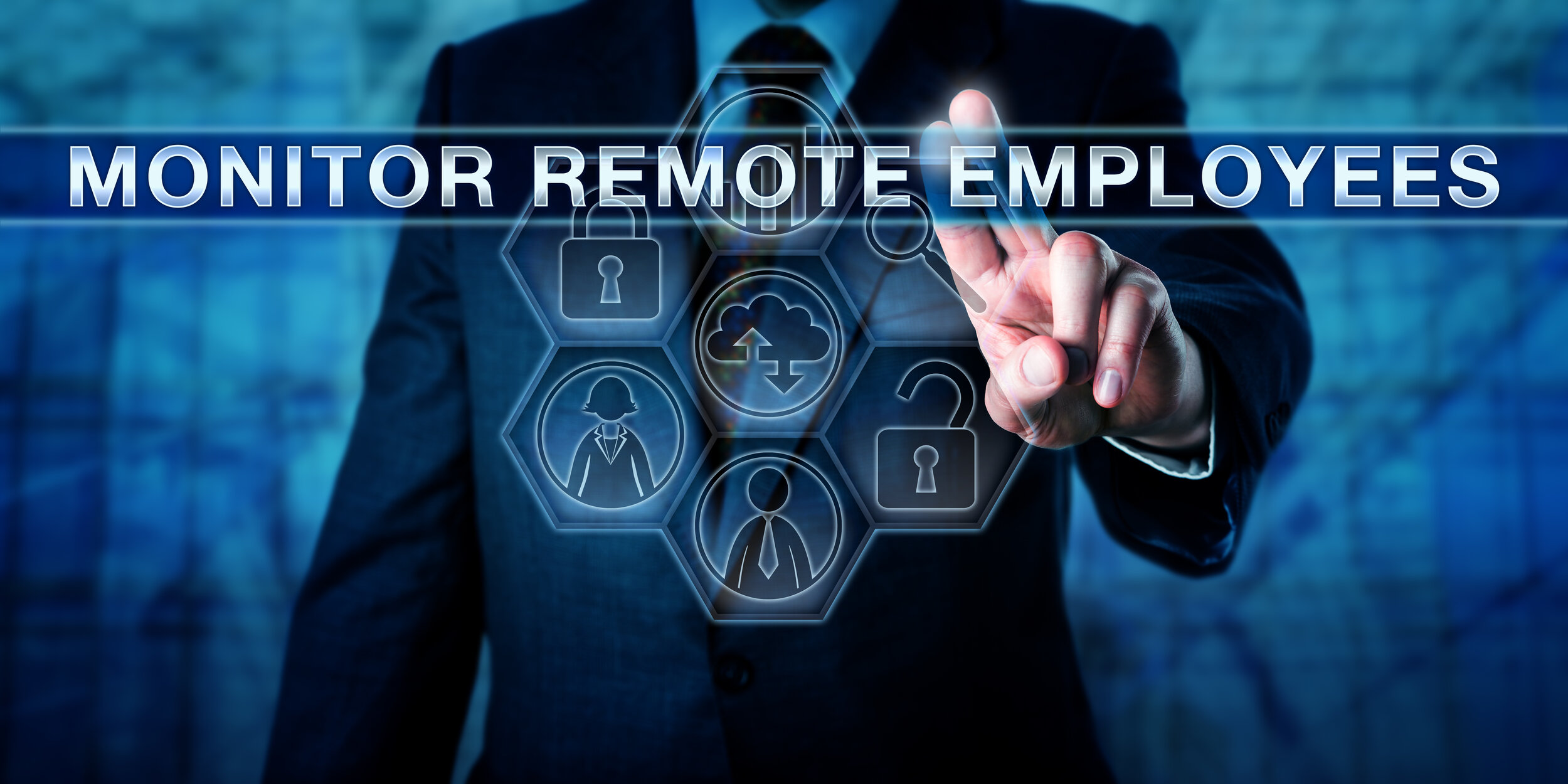Zoom Security is Now for All Users - Free and Paid!
/Zoom will soon provide encryption for all video users - free and paid!
Read MoreZoom will soon provide encryption for all video users - free and paid!
Read MoreMy next guest is Maddy Martin of Smith.AI! Maddy is the head of growth and education for Smith.ai, which provides 24/7 law firm communication & intake services by phone, web, and text. She has spent the last decade growing tech startups from New York to California. Maddy has expertise in digital marketing, small business communications, lead conversion, email marketing, SEO & content marketing, social media, comarketing, and event marketing.
Come listen and learn as Maddy and I discuss the following: 1. What tech are attorneys underutilizing in their practice, 2. What kind of tech integrations can virtual receptionists provide to reduce work for attorneys, and 3. What does she forecast in how we work with technology post-covid.
My next guest is Maddy Martin of Smith.AI! Maddy is the head of growth and education for Smith.ai, which provides 24/7 law firm communication & intake services by phone, web, and text. She has spent the last decade growing tech startups from New York to California.
SPECIAL OFFER FOR THE TECH SAVVY LAWYER.PAGE FOLLOWERS!

Maddy provided the TSL.P Podcast listener a special coupon! Smith.ai offers a 20-call/20-chat free trial, and when you use code TECHSAVVY you'll also get $100 off your first month! Sign up at https://smith.ai or email hello@smith.ai.
Maddy can be reached at maddy@smith.ai and on LinkedIn.
Show Notes and Smith.ai provided Resources and Links:
The Smith.ai Law Firm Communication Playbook
The Smith.ai Law Firm Communication Library
Clio Legal Trends Report 2019 - Smith.ai Infographic of Key Takeaways
Essential Tech Tools and Talent for Small Law Firms Working Remotely
During a recent webinar on COVID-19 between Profit with Law, GNGF, and Smith.ai, many software and services were mentioned as critical resources for lawyers who suddenly find themselves running their firms remotely. From time tracking tools to case management systems, email providers to calendaring solutions, this is our list of the heavy hitters in each major category. We’ve seen them all, and tried many ourselves, so our hope is to spare you the extra time that extensive research requires.
How to Get Crystal Clear VoIP
Corvum.io cofounder and CTO Graham Nelson-Zutter gives us the low-down on VoIP issues, and how to address them. If you’re not 100% sure your business’ phone lines are running in tip-top shape (many aren’t), this is one of those articles you’ll want to carve time out to read.

Videoconferencing has become essential given the COVID-19 pandemic. It has allowed us to remain in contact as a society. Moreover, it is becoming a necessary utility for lawyers. We use videoconferencing programs (listed below) to conduct meetings, depositions, and hearings. With this accelerated use, businesses, including lawyers, are finding that videoconferencing is a more economically efficient means of conducting work. Simply put, it saves money, time, and effort to travel, whether it be in town or long-distance. But, the question remains, do I need an external webcam? Probably not.
I have a Logitech Webcam that I had purchased over 15 years ago - it works great - even at 720 dpi ("dots per square inch" - I'll do a post on webcam resolution in a future post). But, when I purchased it, videocamming from our electronic devices was still not a "thing." As social media pushed forward, so did the desire to communicate via video and with it, accessibility to video from our personal electronic devices.
Webcams are provided internally in almost all of our laptops, tablets, and smartphones. For the most part, they work quite well (and in some cases better than my old webcam and even the video cam built into my iMac). And in all of those devices, which I find it unlikely that any attorney does not have at least one of the three listed, videocasting programs can be downloaded and utilized with ease.
Granted, most desktop computers do not have a webcam built in, although some external monitors do have them embedded. But if you have a laptop, tablet, or smartphone with a cam, why waste the money for an external webcam. Unless you are getting into video casting or are appearing on the news for interviews, you simply don't need a fancy, expensive webcam. Meanwhile, you won't have to worry about draining your computer's resources while camming.
A LIST OF POPULAR VIDEOCASTING PLATFORMS FOR BUSINESSES FOR YOUR REFERENCE
I talk with Billy DiMonte from Planet Depos about keeping litigation on track with remote court reporting!
Read More
Last week, the New York Times (NYT) came out with an article about employers remotely monitoring their employee computers. The COVID-19 Pandemic has increased the "shift" from on-site work to work from home. And employers understandably want to make sure they are getting the same bang for their buck – that is, are their employees working just as hard at home as they do at the office?
The NYT's article highlights an employee-monitoring program made by Hubstaff. The employee installs the program onto their "work" computer (and we are going to come back to about what is a "work" computer a little later). The employer is then allowed to monitor the employee's computer use. The program works for the most part – the employer is allowed to see much of what the employee is doing throughout the day. But to summarize the intrusion level, the supervisor for Adam Satariano, the author of the NYT article, says it best, "ick."
"Ick" in the sense that Adam's supervisor was able to see an internet workout class Adam had been a participant. Granted, Adam forgot to log out of the program before he moved on for the day. Monitoring software may "o.k." for large firms who can afford to provide each of their employees with an individual laptop. But for those of us with limited resources, e.g., solos and small practitioners, we rely on our staff (or contractors) to have their own computer. And if I were one of those "employees," I would not be letting my boss put a monitoring program on my personal computer. But this type of intrusion does not reflect that there is a more significant problem at hand.
Apparently, when employers require their staff to use this type of tracking software, their "productivity" goes up! But "productivity" in the legal field cannot be solely defined upon computer use. Sure, research, typing documents, and reading and sending e-mailing are done on the computer. But, you are not always on the computer during meetings, traveling to and from those meetings, or traveling to or appearing in court. And what about courts and other venues that don't allow electronic devices. What if, GASP, you are reading a paper copy of a book? Or work better handwriting your thoughts? Or better yet, have a bunch of programs running and not actually working! The problem of using a tracking program in "law practice" is that it does not address the most crucial question: Is your staff actually practicing law?
I think lawyers are more concerned with quality work and meeting deadlines. These programs can only monitor quantity. It cannot track the "quality" of the employee's work product. And quite frankly, if you cannot rely on your staff to meet deadlines with quality work, no employee monitoring software program is going provide you with the protection you will need from a bar complaint resulting from shoddy work.
Don’t be like Frank Drebin! Mute your microphone if you are not speaking!!!
Read MoreWhat do you do when your home/office internet goes down?!
Read MoreRemember, people can see what is behind you in your office during a video conference!
Read MoreRemember, people can see what is behind you in your office during a video conference!
Read MoreMICHAEL D.J. EISENBERG IS A WASHINGTON, DC ATTORNEY WHO LOVES HIS TECH.

Over the years I have found myself helping others (especially lawyers) young and old with their tech questions. With this blog, I hope to share my knowledge on a broader scale. My postings are based on the questions I have been asked in the past and trends I see for the future.
I hope my postings can be used by lawyers of any tech skill. And, in the end, provide the readers valuable incite on how lawyers can better their legal practice and their own personal life with the use of technology.
DISCLAIMER: I cannot and do not offer any guarantee of computer hardware, software, services, practice, etc. discussed in this blog. Use at your own risk. Further, I am not offering any legal advice nor do the discussions in this blog create an attorney-client relationship.